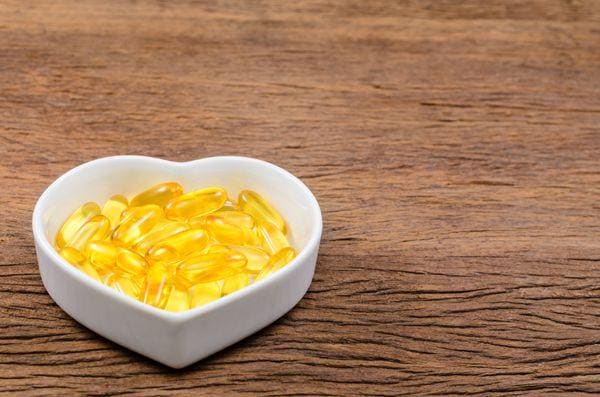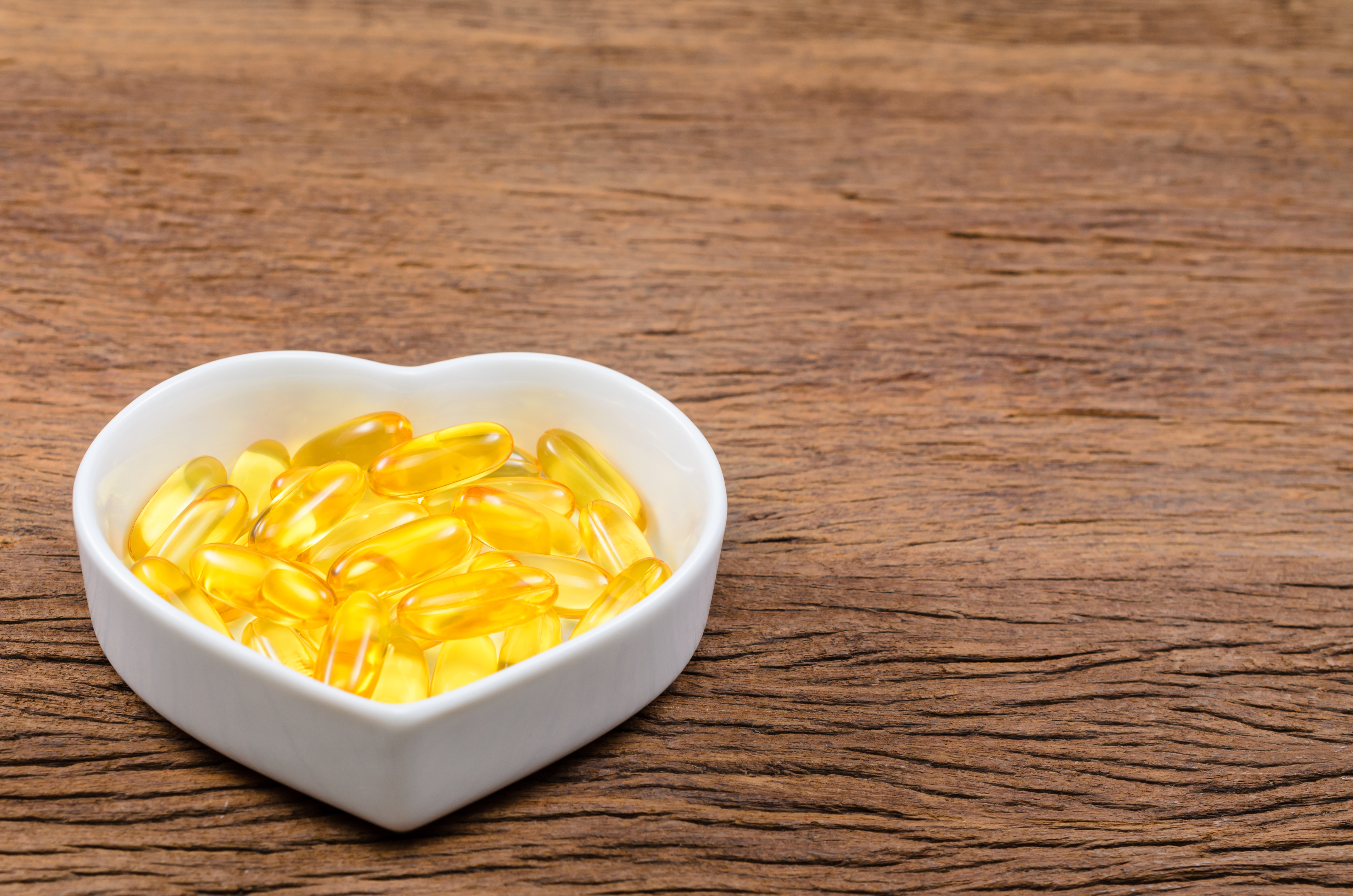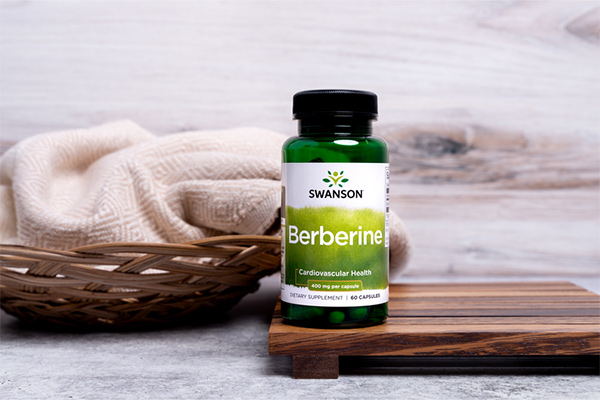The Benefits of Krill Oil
Krill is a tiny, shrimp-like ocean dweller that is making a big splash in the wellness industry. Don’t let its small size fool you – krill tops our list when it comes to packing in healthy omega-3 fatty acids. You’re not likely to find krill in your grocery store anytime soon though (at least not in the U.S.), but krill oil supplements are becoming extremely popular. Experts say the essential fatty acids (EFA) in krill oil may be more easily absorbed by the body than the EFAs in fish oil supplements.1
Read on to learn all about the health benefits of krill oil, what krill oil is good for, and explore how krill oil may help with weight loss, joint health and heart and blood health.
Krill Oil Benefits
Many of the benefits of krill oil and fish oil supplements can be attributed to two forms of omega-3 fatty acids present in krill: eicosapentaenoic acid (EPA) and docosahexaenoic acid (DHA). EPA and DHA are both important nutrients for the human body.
Docosahexaenoic Acid (DHA)
Studies have shown that DHA is absolutely essential for the growth and functional development of the brain in infants, and it is required to maintain healthy brain function in adults.2 A diet that includes adequate levels of this omega-3 fatty acid is reported to support learning, and low levels of DHA in the brain may affect cognitive function as we age. Consuming 200 mg of DHA has been linked with improved heart health, and it may provide a host of other potential benefits, including mood and vision support.2
Eicosapentaenoic Acid (EPA)
EPA may offer some similar benefits, including heart health support, a positive influence on blood lipid levels and many other benefits related to mood support, behavioral health, age-related concerns, and women’s health. EPA may also help support healthy lungs and kidneys. A healthy daily intake of EPA for adults should be at least 220 mg.3
What is Krill Oil Good for? Here’s a Quick List of Popular Krill Oil Uses
- Krill Oil and Heart Health — Studies have shown that EPA and DHA, which are found in krill oil may help support heart health and healthy blood lipid levels.4 Experts say that high blood lipid levels may lead to an increased risk of heart health concerns.5
- Krill Oil and Cognitive Support — A krill oil supplement can help maintain a healthy level of DHA in critical parts of the body, like the brain, where DHA may help support cognitive health, plus DHA is highly concentrated in the brain.6
- Krill Oil and Vision Support — DHA is also highly concentrated in the retina,6 and supplements containing DHA may help support eye health. Krill oil also contains astaxanthin, which supports eye health and may reduce eye fatigue.7
- Weight Loss and Krill Oil — Research suggests that the EPA and DHA in krill oil may help reduce appetite and affect motivation/reward responses, which may support weight loss.8
- Krill Oil for Joint Support — Omega-3 fatty acids like EPA and DHA may be beneficial for the health of your joints as you age.9
- Women’s Health and Krill Oil — Krill oil might help support some physical and emotional concerns that accompany menstration.10,11
Omega 3 Krill Oil Benefits
What makes krill oil special? Unlike other omega-3 supplements, the omega-3 fatty acids in krill oil are bound to phospholipids, which carry the fatty acids into cells at a more efficient rate.1 Phospholipids essentially create an express lane into your cells, meaning your body gets the health benefits much faster. Plus, krill oil also contains astaxanthin, which is an antioxidant that helps fight free radicals, support vision health and maybe be beneficial for cardiovascular health, immune health and healthy aging.
Krill oil supplements offer multi-tier support for your health. You get the benefits of EPA and DHA, plus the many perks of astaxanthin in a convenient way. One last krill oil perk: no fishy burps. Fish oil is great, but it can cause the less-desirable side effect of fishy burps, whereas krill oil does not.
Is Krill Oil Good for You?
While many krill oil uses are still being studied in-depth for further validation, there is very little doubt that krill oil is good for you. It’s a rich source of healthy omega-3 fatty acids and touts a higher EPA content and more bioavailability of both EPA and DHA than fish oil.1
Krill oil also contains the antioxidants vitamin A, vitamin E and astaxanthin, and numerous studies and clinical trials have demonstrated its potential for supporting health in many ways. The health benefits of krill oil include potential support for weight loss, women’s health, joint support, blood and heart health, and more. See below for some of the commonly sought-after benefits of krill oil.
Krill Oil for Heart Health
The omega-3 fatty acids found in krill oil, EPA and DHA, have been shown to support heart health.4 An average consumption of 250 mg of EPA and DHA daily has been associated with a reduced risk of heart concerns.4 Also, since krill oil is believed to promote healthy blood lipid levels, it may also support heart health in that way.12
Krill Oil for Vision Support
The potential benefits of krill oil for eye health are related primarily to the DHA and astaxanthin in krill oil. Harvard Health research suggests that DHA may help protect vision and support eye health as we age.7 The same research also states that DHA is “difficult to consume in sufficient amounts because it is contained in so few food sources.” Since krill oil is such a rich source of highly bioavailable DHA, krill oil supplements can help you get the DHA your daily diet may lack.
As mentioned, Krill oil also contains astaxanthin, which is a powerful antioxidant that helps fight free radicals in your body. Astaxanthin also supports vision health and may be beneficial for cardiovascular health, immune health and healthy aging.13 Learn more about the benefits of astaxanthin in the article Astaxanthin Benefits.
Krill Oil for Joints
Fatty acids are great for joint health, and since krill oil delivers omega-3 fatty acids in a more absorbable form than most fish oils, krill oil may be a better option for joint support. Studies have determined that krill oil encourages joint health in a way that is like fish oil, which has been studied for many years for its positive impact on joint health.14 Researchers have concluded that krill oil helps protect joints and that krill oil deserves further investigation for its potential use in helping with long-term joint health concerns.14
Krill Oil Benefits Weight Loss
More research needs to be conducted on krill oil for weight loss, but the omega-3 fatty acids in krill oil have been shown in both animal and human studies to support a reduction in fat mass and reduce weight gain,8 as well as decrease certain substances the body produces that, may affect appetite and motivation/reward responses.8 The potential effect on the body’s reward response is important because many of us associate food as a reward, which may lead to consuming more calories than are necessary to meet our nutritional needs and weight goals.
Krill Oil for Women
Krill oil may be beneficial for some women’s health issues. Early research suggests that krill oil may be of help to women during menstruation to provide support for physical and emotional concerns.10,11
Krill Oil During Pregnancy
A study involving supplements containing both DHA and EPA taken by pregnant women resulted in higher birth weights of children and longer gestation.14 But always consult your doctor before taking a supplement during pregnancy or breast-feeding to make sure it is safe for you and your baby.
Observational research links the moderate consumption of seafood containing the omega-3 fatty acid DHA during pregnancy and breast-feeding with support of infant health, and lower seafood consumption during pregnancy has been associated with less than optimal communication skills among children.14
Krill Oil for Children
Several clinical trials have studied omega-3 fatty acids for children to assist with behavior concerns and concentration difficulties.15 The studies suggest omega-3 fatty acids may help children, and most parents of the children involved in the studies wanted their children to keep taking the supplements after the studies ended.
Always consult with your child’s doctor before providing krill oil supplements to children.
Is Krill Oil a Blood Thinner?
Taking krill oil along with other medications that slow clotting may result in some blood-related health concerns.10 If you are taking any medications that affect the clotting of your blood in any way, or plan to have surgery, talk with your doctor before taking krill oil supplements.
Does Krill Oil Help with Cholesterol Concerns?
Research and human trials suggest that taking krill oil daily may support cholesterol health, but there is insufficient evidence to say with certainty that krill oil helps with cholesterol and more studies are needed to confirm the benefits of krill oil for cholesterol concerns.11
Krill Oil Health Benefits
Krill oil provides omega-3 fatty acids and nutrients that help support whole-body health, and it offers those nutrients in a form that is highly bioavailable, without the unpleasant effects of fish oil. To learn more about the benefits of omega-3 fatty acids and krill oil, read Krill Oil Vs. Fish Oil.
Sustainable Krill Harvesting
Swanson Health takes care to provide krill oil supplements responsibly. The krill oil used in our products is harvested sustainably through revolutionary Eco-Harvesting™ practices that minimize environmental impact and protect the fragile ecosystem of the Antarctic. Our supplier, Aker BioMarine Antarctic AS, ensures that their annual krill catch falls well within sustainability limits.
Always serving our customers,
Your friends at Swanson
*These statements have not been evaluated by the Food and Drug Administration. These products are not intended to diagnose, treat, cure, or prevent any disease.
Sources
1. A Look at Krill Oil's Benefits. Cleveland Clinic. Read source
2. Health benefits of docosahexaenoic acid (DHA). PubMed. Read source
3. Eicosapentaenoic acid (EPA). Mt. Sinai Icahn School of Medicine.. Read source
4. Dietary Guidelines for Americans. USDA Read source
5. Triglycerides: Why do they matter? Mayo Clinic. Read source
6. Omega-3 Fatty Acids Fact Sheet. National Institutes of Health. Office of Dietary Supplements. Read source
7. Omega-3 for Your Eyes. Harvard Health Publishing. Read source
8. Omega-3 Fatty Acid. National Library of Medicine. Read source
9. 7 Things To Know About Omega-3 Fatty Acids. National Center for Complementary and Integrative Health. Read source
10. Krill Oil. WebMD. Read source
11. Evaluation of the Effects of Neptune Krill Oil. PubMed. Read source
12. Heart Disease and Lowering Cholesterol. WebMD. Read source
13. Effect of Dietary Supplement Containing DHA. Current Medicinal Chemistry. Read source
14. Supplementation of Diet with Krill Oil. BMC Musculoskeletal Disorders. Read source
15. Omega-3 Fatty Acid Treatment of Children. Pediatrics & Child Health. Read source




